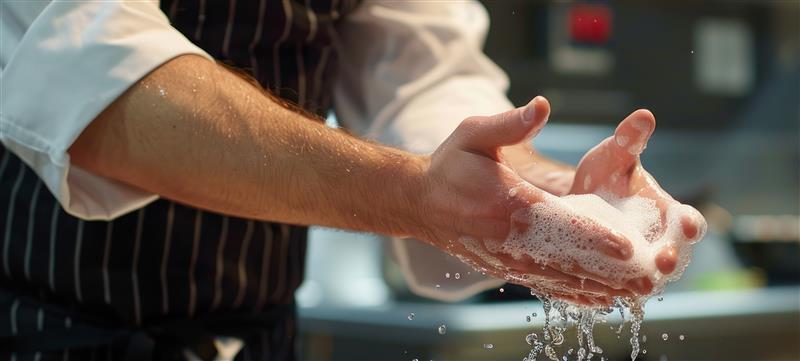If you know your way around a kitchen, have strong leadership qualities and harbour a deep love of food, a role as a head chef could be just the career path for you.
Of course, becoming a kitchen manager requires more than just knowing how to cook and being a little bossy; to excel in a professional kitchen requires years of hard work and dedication, not to mention a head for food safety and the ability to keep a cool head under pressure.
As part of our ongoing blog series on how to reach the top in roles across the hospitality sector, we’ll be looking at the ins and outs of becoming the head chef in a professional kitchen — from the type of work activities you can expect, to the training you’ll need to be successful.
Let’s begin by covering the everyday duties you can expect to undertake as a professional head chef.
The Duties
Compared to other personnel in a professional kitchen environment, the role of a head chef is incredibly varied, with a wide range of duties to attend to on a near-daily basis. Here, we’ll cover some of the work activities you’ll be responsible for as a head chef:
- Creating menus and planning dishes
- Ensuring food is produced to a high standard, is priced correctly and of a high quality
- Managing food stocks and replenishing items from a trusted supplier
- Maintaining excellent hygiene standards that adhere to food safety regulations
- Controlling a budget and logging expenditure accurately
- Organising and overseeing the personnel rota
- Recruiting, training and supporting team members
- Managing team members and allocating tasks to specific individuals
In short, the head chef deals with the everyday administrative duties of the kitchen, as well as the performance of its staff and the quality of its food.
Requirements & Training Information
Like the duties themselves, the requirements needed to become a head chef are diverse and wide-ranging — based on years of hard work in a professional kitchen environment.
The usual route most head chefs take to reach the top is by working their way up the career ladder from kitchen porter to trainee chef to section chef and then, hopefully, to head chef. While this route requires years of hard graft, it’s the perfect way to develop on-the-job whilst enjoying all the benefits of a monthly pay packet.
Of course, there are training courses available which could help you to secure a new role more quickly. Here, we list the different training courses, qualifications and classes which are useful in propelling you from kitchen porter to kitchen gaffer:
- Level 3 (NVQ) Diploma in Professional Cookery
- Level 3 Diploma in Advanced Professional Cookery
Given the additional responsibilities of a head chef, you’ll almost certainly require the following qualifications:
- Level 3 Award in Supervising Food Safety in Catering
- Level 3 Award in Practical Food Safety Supervision for Catering
- Level 3 Award in Nutrition for Healthier Food and Special Diets
- Level 4 Award in Managing Food Safety in Catering
Other Requirements, Skills & Qualities
Gaining the relevant qualifications is one thing, but as mentioned previously, becoming a head chef requires a great deal more than a certificate and an apron.
Here we list some of the other skills, requirements and qualities commonly sought in would-be head chefs:
- Creativity, and a strong interest and knowledge of food, flavour and cookery
- Proven leadership and managerial skills
- Solid organisational skills
- Good budgeting skills and a head for maths
- An attentive attitude to hygiene and cleanliness
- A cool head when chaos ensues
Further Advice and Professional Guidance
To help future chefs understand the requirements needed to become a successful chef, we spoke to an experienced head chef with thirteen years experience working in professional kitchens.
Jamie Smith, executive head chef at Solita in Manchester, gained the majority of his skills and experience from working in a professional kitchen environment for over a decade. We asked him for one piece of advice he can offer to those aspiring to become a head chef — here’s what he said:
“The difference between being good and great is sacrifice. But also being a role model, not expecting anybody to do something you wouldn’t do. Talk to your fellow kitchen staff, have empathy for them but don’t let them take advantage of you. I also try and create a working environment that I don’t feel other restaurants can match.”
Reckon you’ve got what it takes to become a head chef? Start your journey with My Training Academy. We offer a wide range of classroom-based training as well as practical courses to help bolster your skills. To find out more, visit our homepage or call us today on 020 3740 2726.



